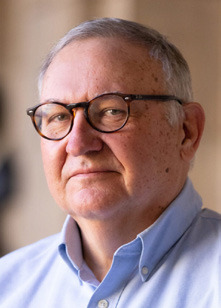George Norris must be rolling over in his grave.
Norris, the father of the one-house Nebraska Unicameral Legislature and one of the greatest U.S. senators in history, sought a political body that would not be dominated by political parties.
So state senators in Norris’ Unicameral are elected on a non-partisan ballot, leaders of legislative committees are chosen by secret ballot and there’s no closed-door, final crafting of legislation in conference committees. The idea is that legislators can make decisions based on what’s best for their constituents, and not what’s dictated by party leaders.
But that isn’t how it went down recently in the Legislature.
During a senate caucus held after each election year, legislative committees were re-organized so that every committee, save one less-important panel, contained a majority of Republicans.
That greases the skids for all kinds of GOP priorities to be advanced from committees. Now, bills that deal with things like tax policy, water issues and rules of the road, will have an easier path to passage in a 49-seat Unicameral where Republicans hold a filibuster-proof, 33 seats — if they all vote in lockstep.
If you believe the Republican Party has all the answers, this is probably something you’re cheering. But if you think the best solutions come from vigorous debate and consideration of several viewpoints, well, this isn’t so good. One issue that’s likely to benefit from this “might makes right” power play is ditching the state’s unique way of distributing its electoral votes for president. Since the 1990s, Nebraska has given two of its electoral votes to the overall election winner, but doles out its other three votes based on who wins in each of the state’s three congressional districts — sort of a popular vote light.
The current system recognizes that Nebraskans in different parts of the state have different political views, and allows their electoral vote to reflect that. Imagine that — your vote counts.
Only three times since the state’s “district system” of distributing electoral votes took effect has Omaha’s 2nd Congressional District voted differently than the rest of the state. The district got the name “blue dot” because it voted Democrat blue in those instances while the rest of our state voted Republican red.
But everyone from Gov. Pillen to President Trump has been complaining about the blue dot. However, in recent years, efforts to erase the dot and go back to a winner-take-all electoral system (all five of the state’s votes would go to the winner overall in the state) were blocked because the committee that dealt with that issue was evenly divided between Republicans and Democrats.
So the winner-take-all bill didn’t have the votes to advance for debate and instead languished in the Government, Military and Veterans Affairs Committee.
Republicans further greased the skids by removing two veteran senators from the committee who are Democrats, Danielle Conrad and Jane Raybould, and replaced them with two, just-elected lawmakers — newbies who might not be as knowledgeable as seasoned lawmakers.

.jpg)










